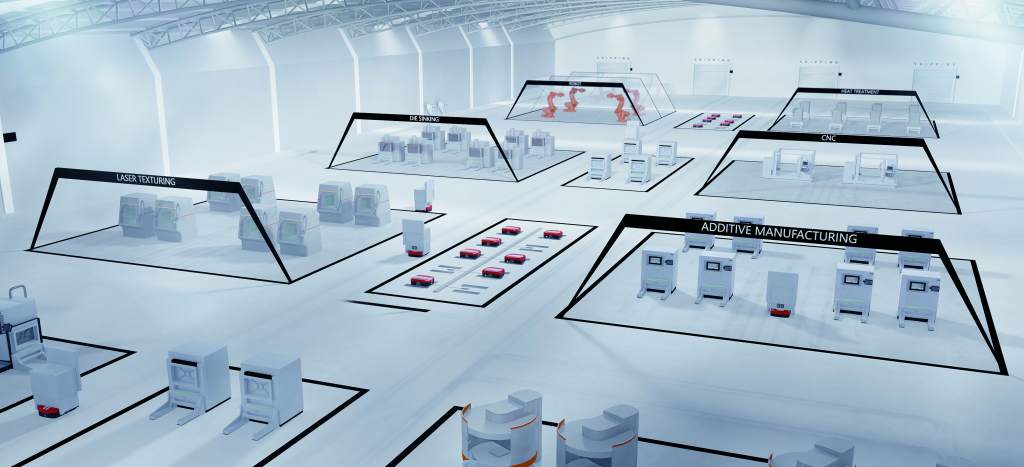Premium AEROTEC, a subsidiary of multinational aerospace organization Airbus Group, is collaborating with industrial 3D printing solutions provider EOS and automotive manufacturer Daimler to develop a 3D printing powered smart factory. Together the companies, each based in Germany, are working on the “next generation of additive manufacturing (AM)” in a project titled NextGenAM.
The aim of the project is to automate industrial 3D printing processes, preparing the technology for larger batches of serial production.

Advancing to the next level
As Dr. Thomas Ehm CEO of Premium AEROTEC comments in his statement on NextGenAM, this movement towards serial production is essential to continued innovation in the field. He says,
We are currently the leader for metal 3D printing in the aerospace industry. Now, we need to continue developing this technology extensively in order to expand its application spectrum significantly. Together with our partners, we can thus ensure state-of-the-art technology for our industry.
The concept fits with the manufacturing movement towards Industry 4.0, where machines operate almost autonomously, and processes are monitored through a sophisticated system of digital data collection.
Software, like the “Go Beyond 4.0” concept for mass customisation of batch products from Fraunhofer, and platforms such as Dassault Systèmes’ 3DEXPERIENCE from have been quick to follow suit and cater for the trend in better connected hardware. As previously reported on 3D Printing Industry, manufacturers have also united to develop guidelines for the adoption of augmented reality in factories too.
Smart Factory Blueprint
In NextGenAM the partners will examine each stage of the metal 3D printing process from transportation of materials between machines, to cleaning after printing. They will then provide automated solutions where possible. This will cut down on the time and cost of the current system, and create a more reliable model for serial production. Post-processing is likely to be an area of significant focus, as the current cost of this constitutes around 70 percent of the overall expenditure for additive manufacturing.
The current draft of the NextGenAM project factory can be seen below. In it, machines are arranged in banks suited to each stage of the process: additive manufacturing, CNC milling, heat treatment, die sinking, laser texturing and robotic arm assembly and inspection. Each section is serviced by a fleet of moving machines, located in banks central to the factory, that collect and transport parts or materials to the required stage of the process.

In addition to developing this smart factory concept, the project seeks to attain qualification of aluminium for industrial-grade 3D printing.
Dr. Stefan Kienzle, Head of Advance Development at Daimler AG, adds,
The elements that we bring to this collaboration are our extensive experience in automotive materials and the qualification of those materials, as well as our know-how on efficient and large-scale capacity manufacturing processes in conjunction with component design that is topologically optimised and the latest calculation methods.
For more on the NextGenAM project and related concepts sign up to the 3D Printing Industry newsletter, and follow our active social media sites.
Don’t forget to vote in the first annual 3D Printing Industry Awards.
Tickets for the 3D Printing Industry Awards are also now available here.
Featured image shows the Next Generation Additive Manufacturing project logo from EOS, Premium AEROTEC and Daimler.



